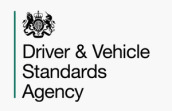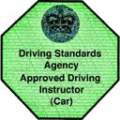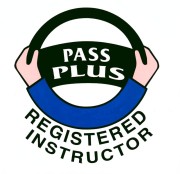COVID-19 Lesson Information
Please Copy and Paste this and email it to me, Thank you:
- Coronaviruses are a family of viruses that cause disease in animals and can be transmitted to humans. They can range from the common cold to acute respiratory forms
- Novel coronavirus (COVID-19) is a new strain of coronavirus that affects your lungs and airways
- The current epidemic is caused by this specific coronavirus, COVID-19 that emerged in China in December 2019
- COVID-19 is closely related to severe acute respiratory syndrome (SARS) which swept around the world in 2002 to 2003. That virus infected around 8,000 people and killed about 800 but it soon ran itself out, largely because most of those infected were seriously ill so it was easier to control
- Another coronavirus is MERS, Middle East Respiratory Syndrome, cases of which have been occurring sporadically since it first emerged in 2012.There have been around 2,500 cases and nearly 900 deaths
- COVID-19 is different to the previously mentioned coronaviruses in that the spectrum of disease is broad, with around 80% of cases leading to a mild infection. There may also be many people carrying the disease and displaying no symptoms, making it even harder to control
- To date we have seen over 8 million cases of COVID-19 infection worldwide, over 450,000 deaths but over 4.5 million people have recovered
- So far, around 20% of COVID-19 cases have been classed as ‘severe’ and the current death rate varies between 0.7% and 3.4% depending on the location and, crucially, access to good hospital care
- The new coronavirus can be spread from person to person. It is diagnosed with a laboratory test
- There is no coronavirus vaccine yet, though several trials are underway worldwide
COVID-19 symptoms include:
- Cough: a new, continuous cough – this means coughing a lot for more than an hour, or three or more coughing episodes in 24 hours (if you usually have a cough, it may be worse than usual)
- High temperature: this means you feel hot to touch on your chest or back, or you have measured your temperature and recorded a high result (typically above 38°C is considered a fever)
- Unexplained loss of taste or smell: a loss or change to your sense of smell or taste – this means you’ve noticed you cannot smell or taste anything, or things smell or taste different to normal
- Shortness of breath
- Muscle aches
- Sore throat
- Diarrhoea
- Headache
How does it spread?
- Coronavirus is primarily spread by small droplets that are expelled from the nose and mouth when someone that is infected coughs, sneezes or speaks
- This can then be breathed in by others or picked up from surfaces and transferred from your hand to your eyes, nose or mouth if you touch them
- COVID-19 doesn’t transmit through skin contact on your hand, but rather when bacteria enters your system through mucous membranes on your body or via respiratory droplets in close proximity
- Research suggests that you can be infectious up to a week before any symptoms show. Although showing these symptoms does not necessarily mean you have contracted the virus, you should follow the guidance and self-isolate as soon as you show symptoms. It is also a good idea to let others you may have been in contact with know, as they may also need to self-isolate
Due to the lockdown, there is now a long waiting list for both Practical and Theory Test. The DVSA have released the statement below:
DVSA Chief Executive Gareth Llewellyn said:
“It has been vital that lessons and tests only resume when safe to do so and in line with the government’s advice. I am pleased to announce the restart of lessons and theory tests in England from 4 July and car practical tests will restart from 22 July.
“Tests for critical workers have continued during the lockdown and I would like to thank all those instructors and examiners who have continued to work to help deliver tests for those who have done so much to help us during this terrible pandemic.”
DVSA has continued to test critical workers during the lockdown and driving lessons have continued for these workers.
The phased restart to testing:
- 4 July – driving and riding lessons and Compulsory Basic Training to restart (England only)
- 4 July – theory test restarts for all candidates – including Approved Driving Instructor part 1 tests (England only)
- 6 July – expanding critical worker driving tests to more applicants (Great Britain)
- 6 July – trainer booker service for practical driving tests reopens to motorcycle trainers and vocational instructors(Trainers will only be able to book tests at tests centres in England)
- 13 July – motorcycle and vocational tests start (England only
New candidates will be able to book driving tests once DVSA has carried out the tests reserved for critical workers and everyone with a suspended test has had the opportunity to choose a new time and date. DVSA will announce when the system opens to book tests in due course.
DVSA is contacting anyone who has a scheduled test to let them know what will happen next. DVSA will then email them at a later date to invite them to book a test at a time and location that is convenient for them. Learners should talk to their instructors and arrange refresher lessons so they can practice the skills they need to prepare for their test.
Safety measures will be put in place to protect learners and examiners from COVID-19 and information on how to implement these measures will be published in due course.
With all the above in mind, please be aware that to date there has been no confirmation of any extension to theory tests that are due to expire over the next few months. We strongly recommend that if your theory test is due to expire within the next few months, you book another date before the expiry, DVSA will allow you to do this. If it is not required then you can ask for a refund. This will cut down your waiting time which could delay your practical test. Anybody who has not yet booked a theory test we would strongly recommend that you book one as soon as possible to get a date in the diary.
With the practical test, as mentioned above, the priorities will go to Key Workers and any tests that were cancelled during the lockdown. This means that anybody who had not booked a practical test may have a long wait until dates are available.
To ensure we protect all our students, our cars and equipment will receive a deep clean before we return to training.
Before/after each lesson/test the car will be cleaned, including:
- Door handles (inside and out) – grab handles – window controls – door mirror controls
- Seats and seat adjustment controls – seatbelt – buckle and clasp
- Steering wheel – steering wheel adjuster – indicator and wiper stalks – horn
- Gear lever – hand/parking brake and the interior mirror
- Bonnet catch (internal and external)
- Other controls such as Sat Nav – ventilation – window demister
- Car keys
- The two front seats will now have washable seat covers to assist with easy cleaning
- Each car will be cleaned outside the students collection point, please keep 2-metres away until you are called over
- Students will be asked a number of questions before they enter the vehicle and this may include their temperature being taken by a non-contact body thermometer
- If for any reason the student is showing any signs of the Coronavirus the lesson will be terminated either at the start or during the lesson.
- We will be reducing the number of driving lessons we deliver each day to ensure the safety of our students.
You will be required to stand two metres away and confirm the following questions about your health:
- Symptoms of Covid-19 – have you had it, been tested for it, and had results of the test?
- Shielding – are you in a household of family members that are in the enhanced risk health categories?
- Any health issues which may impact your ability to drive?
- Do you have a continuous cough?
- Do you have a fever or high temperature?
- You will be required to wash your hands thoroughly for at least 20-seconds before leaving the house and entering the car and you should wash your hands after your lesson
- You can wear gloves, (but these should be put on just before you enter the vehicle and the instructor must see you put them on). However general advice is that good hand hygiene is better than gloves, which provide a false sense of security
- You can wear a mask, but this is not compulsory
- You will need to sanitise your hands again when entering the vehicle (you can use your own or we will supply)
- All items, such as mobile phones and house keys will have to stay on you and not left on the dashboard or put into door pockets.
- Any bags you bring, for onward journey must go in the boot
- Driving lessons can only be delivered in the driving school car (this may be the same for driving tests, but the DVSA has not confirmed this)
Cancellations
If you or anyone you are living with have any Symptoms you MUST cancel your driving lesson before your lesson start time. Once cancelled you will not be able to restart your lessons until you have been tested negative, or follow the Government isolation recommendations (this is the same for the instructor).
Name *
First
Last
Email *
Today's Date.
Tick all boxes to confirm you have read and understood each section *
- What is coronavirus (COVID-19)
- What are the signs and symptoms and how does it spread?
- Practical and Theory Test
- What are we doing to ensure the Health and Safety of our students
- Pupils responsibility before each lesson





